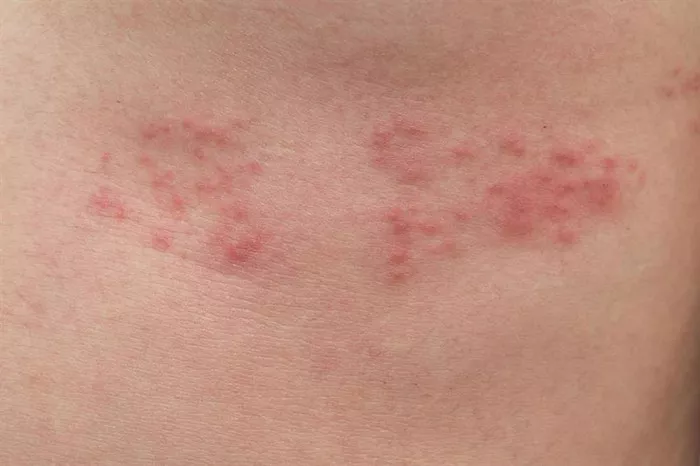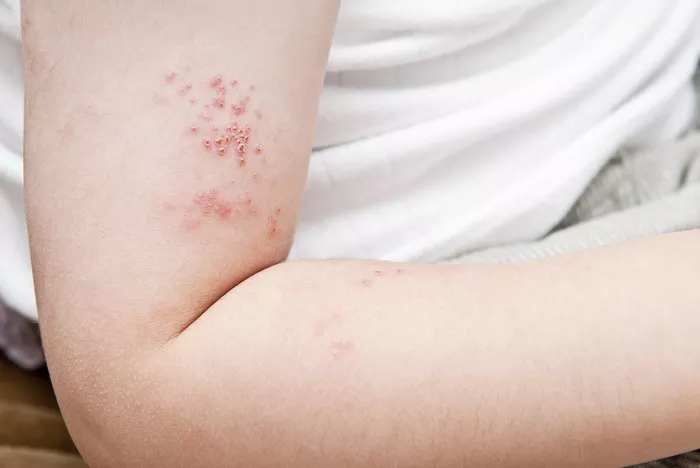When people hear the term “ringworm,” they often imagine a parasitic infection caused by a worm. However, ringworm has nothing to do with worms at all. Instead, it is a fungal infection of the skin that presents itself as a red, circular rash with raised edges. Despite its name, the condition is not caused by a worm, but by a type of fungus called dermatophytes. This article will explain what ringworm is, how it is caused, how to treat it, and how to prevent it.
What Is Ringworm?
Ringworm is a common skin condition that can affect anyone, regardless of age, gender, or background. The infection is medically known as tinea, followed by the area of the body that is infected. For example, ringworm on the body is called tinea corporis, while ringworm on the scalp is called tinea capitis.
Ringworm is typically identified by the appearance of a red, circular rash with a clear center. The edges of the rash are often raised and may look scaly or crusty. The name “ringworm” comes from the shape of the infection, which resembles a ring or a circular worm.
Though the infection can be uncomfortable, it is usually not serious and can be treated with antifungal medications.
The Cause of Ringworm: Fungi, Not Worms
The most important thing to understand about ringworm is that it is not caused by a worm. Instead, it is caused by a type of fungus known as dermatophytes. Dermatophytes are fungi that thrive on keratin, the protein found in skin, hair, and nails. These fungi live on the outer layers of the skin, where they feed on dead skin cells.
Dermatophytes can be transmitted through direct contact with infected skin or by touching contaminated objects, such as towels, clothes, or bed linens. Fungi can also be spread through contact with infected animals, such as cats or dogs, or through the soil. It is important to note that dermatophytes do not live deep within the body, and they rarely cause more serious infections outside of the skin, hair, and nails.
How Does Ringworm Spread?
Ringworm is highly contagious, which is why it can spread so easily. The fungi can live on surfaces for extended periods, and they can be transferred to a person through direct skin contact or by touching contaminated objects.
Here are some common ways ringworm spreads:
Direct Contact: The most common way ringworm is spread is through direct contact with an infected person or animal. If someone has ringworm and you touch their skin or share items like clothing, towels, or bedding, you are at risk of becoming infected.
Contaminated Surfaces: Ringworm spores can live on surfaces such as floors, gym equipment, or furniture for days or even weeks. When you touch these surfaces and then touch your skin, the infection can spread.
Pets and Animals: Cats, dogs, and other animals can carry ringworm and transmit it to humans. This is especially true if the animal has visible lesions or bald patches. If your pet has ringworm, it is important to treat them promptly to avoid spreading the infection.
Soil: Ringworm fungi can also live in soil, particularly in warm and humid environments. If you have contact with contaminated soil, such as during gardening or outdoor activities, you may be at risk.
Symptoms of Ringworm
The symptoms of ringworm can vary depending on the area of the body affected. Some common signs and symptoms of ringworm include:
Red, Circular Rash: The hallmark of ringworm is a red, circular rash with raised, scaly edges. The center of the rash may appear clear, giving it the appearance of a ring.
Itching and Irritation: The rash may be itchy, and scratching the affected area can make the infection worse. The skin around the rash may also become irritated, swollen, or inflamed.
Hair Loss (Scalp): If ringworm affects the scalp, it can cause hair loss in the infected area. The scalp may become scaly or patchy, and the hair may break off near the scalp.
Blisters or Pustules: In some cases, ringworm can cause blisters or pustules to form around the edges of the rash. These can be painful and may ooze or crust over.
Nail Changes: If ringworm affects the nails, the nails may become thickened, discolored, or brittle. The nail may also separate from the nail bed in severe cases.
How Is Ringworm Diagnosed?
If you suspect that you have ringworm, it is important to see a healthcare professional for an accurate diagnosis. Your doctor will typically perform a physical exam and ask about your symptoms and medical history.
In some cases, your doctor may take a skin scraping or sample of the affected area to examine under a microscope. This will allow them to identify the presence of dermatophytes. In more complicated cases, such as ringworm of the scalp, a culture may be taken to identify the specific fungus causing the infection.
Treatment Options for Ringworm
The good news is that ringworm can be effectively treated with antifungal medications. The type of treatment depends on the severity of the infection, the location of the rash, and the individual’s overall health.
Topical Antifungal Creams or Ointments: For mild cases of ringworm, over-the-counter antifungal creams, lotions, or ointments are often effective. These products contain active ingredients such as clotrimazole, miconazole, or terbinafine, which target the fungi causing the infection.
Oral Antifungal Medications: In more severe cases, or when the infection affects the scalp or nails, oral antifungal medications may be prescribed. These medications, such as terbinafine or itraconazole, work by killing the fungus from the inside out.
Shampoos for Scalp Ringworm: If ringworm affects the scalp, your doctor may recommend antifungal shampoos in addition to oral or topical treatments. These shampoos contain ingredients like ketoconazole or selenium sulfide, which help reduce fungal growth on the scalp.
Home Remedies: While not a substitute for medical treatment, some home remedies can help alleviate the symptoms of ringworm. Tea tree oil, for example, is known for its antifungal properties and may help soothe the skin. However, it is essential to speak with your doctor before trying home remedies.
Preventing Ringworm
Since ringworm is highly contagious, taking steps to prevent it is important, especially if you are at higher risk. Here are some tips for avoiding ringworm:
Practice Good Hygiene: Wash your hands frequently, especially after touching animals, contaminated surfaces, or people with ringworm. Keep your skin clean and dry, as dermatophytes thrive in warm, moist environments.
Avoid Sharing Personal Items: Do not share towels, clothing, shoes, or hairbrushes with others. These items can easily carry fungi from one person to another.
Keep Your Feet Dry: Athlete’s foot, a type of ringworm on the feet, is common in people who wear tight, sweaty shoes. Be sure to dry your feet thoroughly after showering or swimming, and consider wearing breathable shoes and socks.
Treat Pets Promptly: If you have pets, ensure they are regularly checked for signs of ringworm. If your pet is diagnosed with ringworm, follow your veterinarian’s treatment plan and take precautions to avoid spreading the infection.
Disinfect Shared Spaces: Regularly disinfect areas that come into contact with your skin, such as bathroom floors, gym equipment, and shared living spaces.
Avoid Walking Barefoot in Public Areas: Areas such as public showers, swimming pools, and gyms are common places for fungi to spread. Always wear flip-flops or shoes to protect your feet.
Conclusion
While the name “ringworm” may suggest a connection to worms, this common skin condition is actually caused by a fungus, not a parasite. Ringworm is highly contagious and can spread easily through direct contact, contaminated surfaces, or animals. Symptoms include red, circular rashes, itching, and sometimes hair loss or blisters. Thankfully, ringworm can be effectively treated with antifungal medications and prevented by practicing good hygiene and taking precautions in high-risk environments.
If you suspect you have ringworm, it’s important to seek medical treatment to prevent it from spreading and to receive the most appropriate care. With proper treatment and prevention strategies, ringworm can be effectively managed, and you can enjoy healthy, fungus-free skin.
Related topics:



























